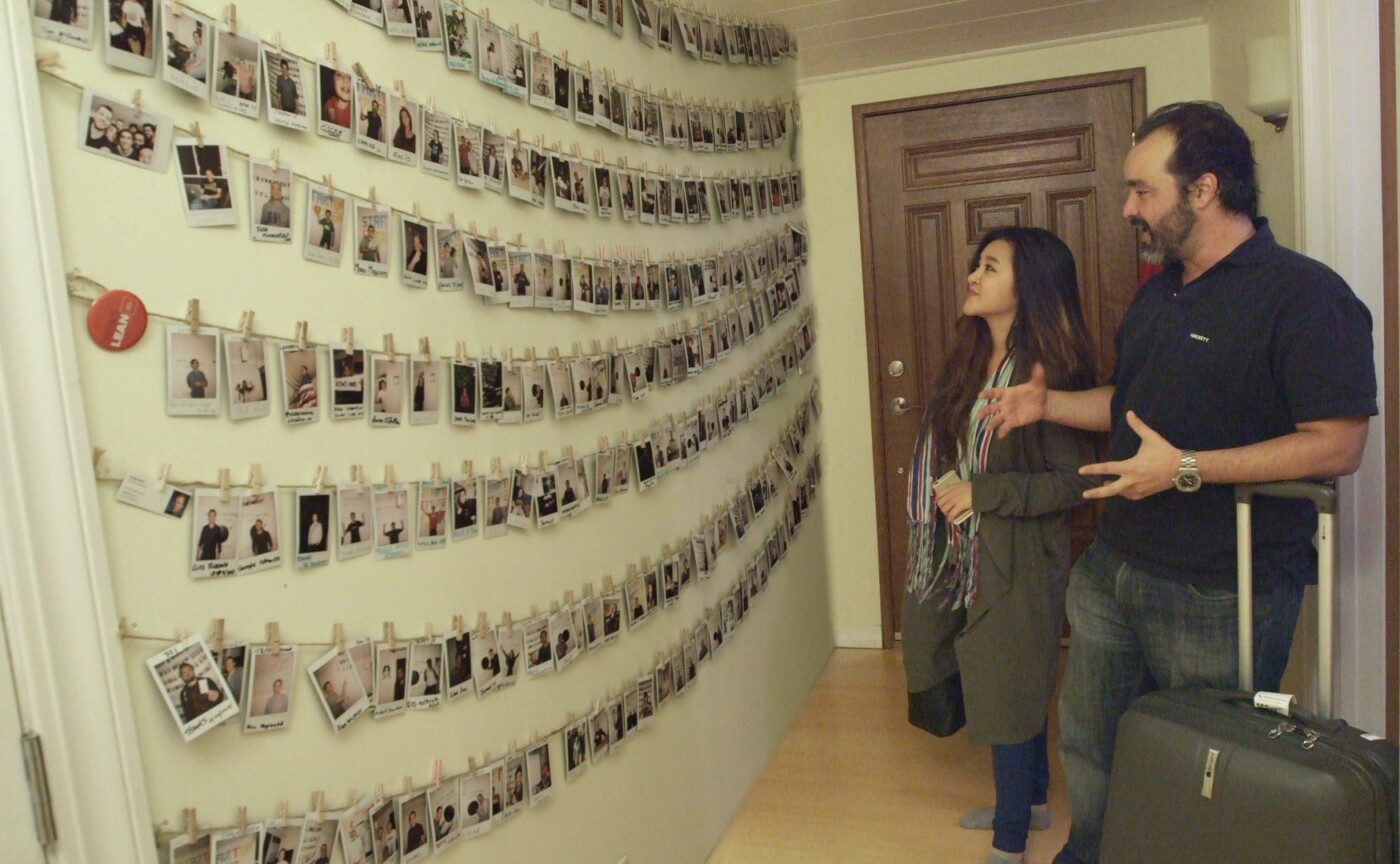Silicon Valley entrepreneurs may not sound like fresh or exciting documentary subjects, but in “The Dreamers and I”—about scrappy innovators at a hacker house—their passions and stories are exhilarating and inspiring.
Directed by Kenji Yamamoto, the 73-minute doc screens Saturday at the DocLands festival, which continues through Sunday in San Rafael.
“It was a 10-year birth,” says Yamamoto, a longtime film editor, describing the film’s road to completion.

With interviews, fly-on-the-wall camerawork, narration and animation, the movie is a realistic follow-your-dream collage and glimpse into the entrepreneur psyche. Its protagonists are under-the-radar and cash-strapped entrepreneurs whose projects involve everything from artificial intelligence apps to fire-safety products.
“I really wanted to make the antithesis of Steve Jobs,” says Yamamoto, who introduces resourceful, down-to-earth startup creators who came to the Bay Area from around the world seeking opportunities to develop and bring projects to fruition. They express no interest in becoming tech-world superstars.
Yamamoto accompanies their stories with his own. He begins by going back to 2015, when he was a freelance film editor working on videos for the Apple Watch launch.
Because the lengthy commute from his Greenbrae home to Silicon Valley became intolerable, Yamamoto, needing an affordable place to stay in Silicon Valley, wound up at Startup Embassy, a hacker house. (Hacker houses are living-working spaces where entrepreneurs and tech-minded innovators share experiences and knowledge.)
The Startup Embassy— $50 a night, eight bunks to a room— reflected a seldom spotlighted side of Silicon Valley’s entrepreneur world.
The arrangement worried Yamamoto’s wife, Nancy Kelly. “I was horrified,” Kelly says a decade later, recalling her response when her husband told her about his new living environment.
Having long wanted to direct a film, Yamamoto realized that the entrepreneurs at the hacker house would make terrific subjects for a documentary.
“I borrowed a friend’s movie camera, I wrote a grant proposal, I got some money,” Yamamoto says. (He used the borrowed camera for 10 years.)
“It’s an organic kind of camaraderie I really gravitated to,” Yamamoto says, adding that the global aspect of the household makeup appealed to him for personal reasons: “The ethnic faces, myself being Japanese, I felt at home, they felt comfortable with me,” he says, noting that 85 percent of Startup Embassy residents are from other countries.
“The American dream is more alive than ever,” Yamamoto says, but he adds that it is not U.S.-born Americans who most exemplify that: “It’s people from other cultures and other ethnicities and oppressive governments that see America as this land of possibility.”
The Bay Area, meanwhile, is a special draw, being immigrant-friendly, ethnically diverse, and leaning left politically.
“Silicon Valley,” meanwhile, “is very exciting,” he adds. “It has its own culture, it is open to the craziest of ideas.”
Yamamoto selected three entrepreneurs for the movie not only for their innovative ideas but for their openness and honesty in front of the camera.
Carlos, from Madrid, is the CEO and founder of Startup Embassy, and, in Yamamoto’s words, the welcoming “host of all inventors,” a “guiding spirit” and the “grease that greases the wheel.”
Habibe, from Istanbul, is a material scientist who built a highly regarded electrochromic glass (which can change color with electricity) and founded her own nanotechnology company. She describes her entrepreneur experience as a “San Francisco dream.”
Lucas, from Seville, is a software-development pioneer and the CEO of Caleida, a company that helps businesses increase sales through advanced A.I.-driven solutions.
Yamamoto follows the trio over a decade, filming everything from partnership meetings to testing in labs, to family scenes in Spain and Turkey, to sad discussions about the likely impending closure of the hacker house. The entrepreneurs sometimes become so consumed by their projects that debts become insurmountable, and relationships suffer.
Yamamoto also chronicles his own creative journey: “I decided that I’m part of the story. The reason why I was so attracted to them was I wanted to be like them,” he says of his fellow Startup Embassy residents.
“Putting my own money into my project, risking my marriage—I am surely pairing myself with their journey,” he recalls thinking. “When I first met these hackers, they made me want to fly, and now I am one of them.”
His fear of appearing on camera prompted him to bring an animator aboard to illustrate his journey.
“I thought, ‘What if there’s an avatar—a character who could fly and have some fun?’” he recalls. He calls Jim Richardson’s creations in the movie as “gleeful and as wickedly funny as I was hoping.”
Yamamoto, who admires filmmakers Francis Ford Coppola, Agnès Varda, Belgium’s Dardenne brothers, and, most enthusiastically, Kelly, his wife of 35 years and longtime artistic partner (her credits include 1991’s highly regarded “Thousand Pieces of Gold”), says he hopes that “The Dreamers and I” will inspire people of all ages and backgrounds to embrace their own voice and passionately create something meaningful and wonderful.
“Dreamers of the world: If you’re an artist, if you’re a mom, if you’re a writer of books — do not be afraid,” he says. It’s not necessary to be young, either, says Yamamoto, who, in the wake of the film’s “10-year birth,” is now 75 and hints that he and Kelly may have new projects in the works.
“You only have one life,” he says. “Make yourself happy by reaching out to what you really want.”
Kenji Yamamoto and Nancy Kelly screen “The Dreamers and I” at 3:15 p.m. May 3 at the Smith Rafael Film Center, 1118 Fourth St., San Rafael. Tickets ($9-$18.50) and the full DocLands schedule are at doclands.com.
The post ‘Dreamers and I’ details inspiring journeys of scrappy Silicon Valley tech innovators appeared first on Local News Matters.
